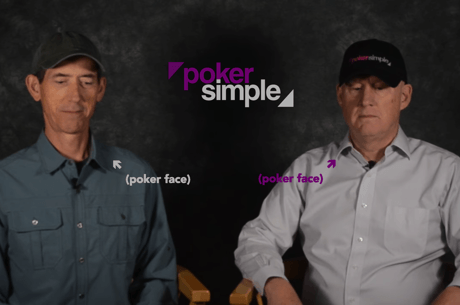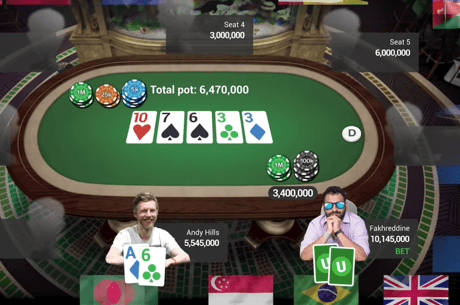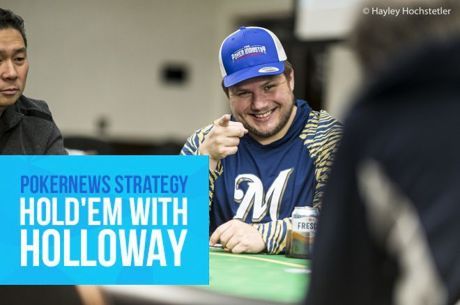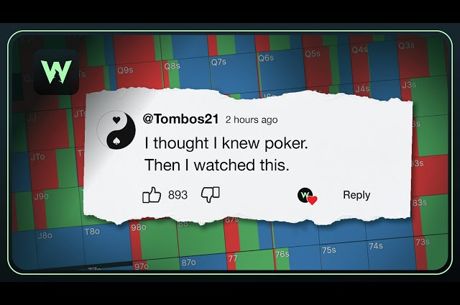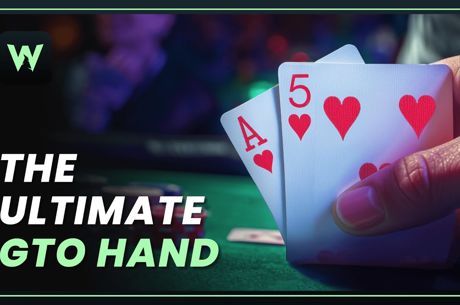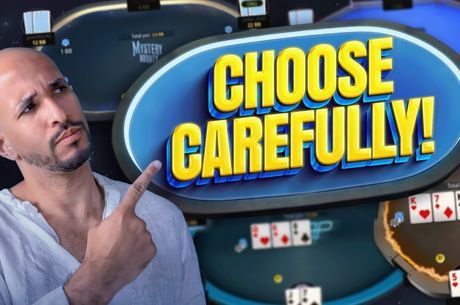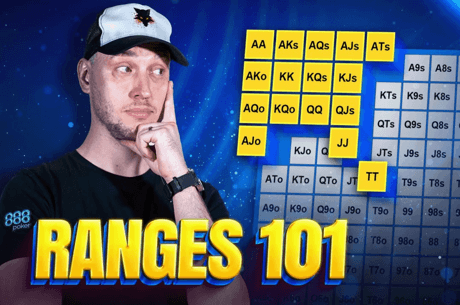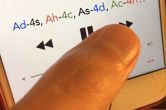When and Why to Fold the Small Blind in Limped Pots
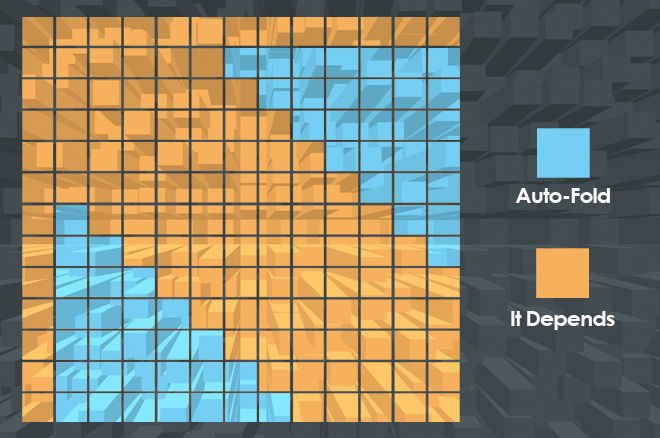
"The small blind is where money goes to die."
~me
A slew of players limp and now it's your turn in the small blind. You look left. The big blind has a chip on his cards and he's sitting back, ready to see a flop.
The pot is $11 and it costs you $1 to call.
Have you ever folded in this situation? Have you ever considered it?
I learned this play from two sources. First, by copying winning players. Second, by replacing my bone marrow with this paragraph from John Vorhaus:
I know of no truer truth of poker than everything's harder out of position. It's harder to bluff, harder to control the size of the pot, harder to get the right price for draws, harder to protect big hands, harder to know where your opponents are in the hand − harder, harder, harder.
I knew it was a smart play because every day I watched smart people do it. And thanks to JV, I learned why. And that was that. I've been a small-blind mucker ever since.
I'll spell out my folding ranges, with range charts, at the end. But first I want to talk about why to do it, and how to summon the discipline to do it, and how to cash in on the consequences.
Upping Your Act Last Percentage
The button and the small blind are the only two always positions: you are either always first, or always last. As good as the button is, the small blind is equally bad. The small blind is the anti-button.
The reason it's profitable to fold the small blind is the effect on your ALP — your Act Last Percentage. By folding the small blind more often than your opponents, you continuously adjust your Act Last Percentage in your favor.
Imagine if you acted last on every street of every hand. You'd be invincible. Forever-last is not possible. But each time you fold the small blind, your ALP goes up, and you move in the direction of positional perfection.
Our Siren Song
The size of the pot is one number and the cost to complete the blind is another number. Just because it's possible to say the words "the pot was laying me nine to one" does not mean that those words have a practical meaning in this context. It doesn't mean you should call.
"I was getting a good price in the blind so I called."
When we hear those words during sixth street, the person stacking chips had something like 7-4-offsuit or J-2-suited. Our happy hero couldn't wait to pay $1 for the worst thing in poker — a bad hand in first position — while thinking nothing of it, because everybody does it, even on TV.
This is our Siren's song, seductively sung by the small blind:
"I bring you a cheap buzz and irresistible odds! Complete me!"
Resulting in millions of shipwrecks every year. Completing the small blind is the most condoned leak in poker. And the simplest to plug.
More Fold Equity
Folding the small blind will add bluffing weight to your chips, also known as fold equity. When you fold the small blind in a multi-way limped pot, it will be noticed, and your opponents will instinctively fear your subsequent bets and raises a little more than before. This bump in bluffing power is free. All you did was fold a lousy hand out of position. And with each fold, your power grows, as confirmed by the occasional comment or gasp.
Less Pain
It's hard to wash off the feeling of playing jack-six in the small blind and flopping top pair and losing a chunk of chips. Or maybe you whiffed the flop but for some reason you decided to throw bluffing chips into the pot, twice, with no solid read, and no positional power, and no outs.
One botched pot like that can wreck a winning mojo that took hours to acquire. Naughty pots, out of position. They erode your foundation. They get no respect. They wear you down. They hurt.
So don't do it. Don't hold your hand over the flame to see what will happen. End the pain before it starts. Muck your hand.
Ask Yourself…
Do you think your results in the small blind could improve? If yes, then ask this: Which choice is most likely to raise your score? Playing more hands? Or fewer?
The Button Is Coming
If you watch the small blind hand instead of playing it, you can use that time to settle yourself in preparation for your late-position hands.
Cashing In
To cash in on your new folding, you don't need new strategies. Just do the folding, and that alone will rate to improve your score. You'll also gain by feeling less unhappy about poker in general because you'll be removing from your life the situations that give you the most reliable headaches, the ones where you somehow find yourself playing a crappy starting hand out of position. Don't be ashamed to fold before the flop. Since the dawn of poker time, throwing away crappy hands has been what winners do.
Summoning the Discipline
To fold the small blind, plan it. Think about it. Obsess over it. The change might come easily, now that you've been given permission. Who knows, you might like it so much that it becomes second nature after the second time. Or it could be a non-starter and you know it; you either think it's a stupid idea, or you think it's a reasonable idea, but you just don't want to.
For the narrow band of you who want to increase your folding rate from the small blind but can't summon the will to do so, all I can say is, keep trying. Below are some auto-fold ranges that might help.
Folding Ranges to Consider
If you are one who always completes the small blind in multi-way limped pots, then start small. Make plans to fold the worst of the worst, such as 9-2-offsuit and 8-3-offsuit. Then build out your auto-fold range from there. The main thing for now is to break the seal.
For apprentice muckers, I suggest this 34% auto-fold range, comprised of all ace-less, pair-less hands that cannot flop a straight:
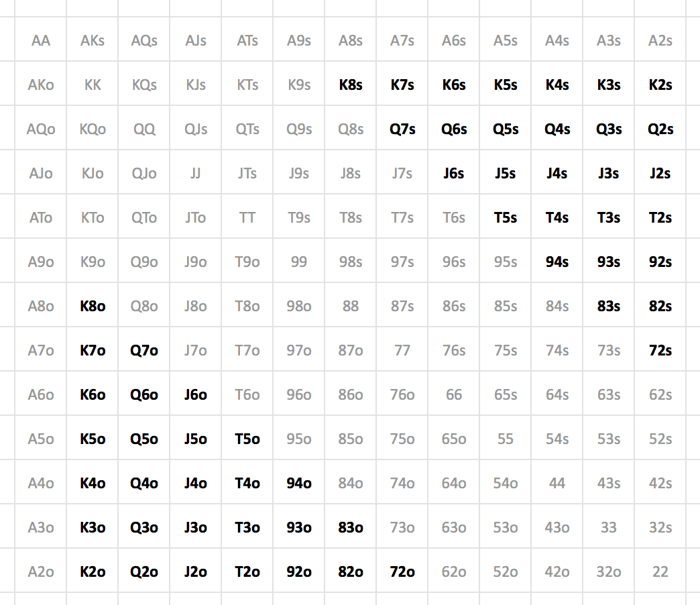
For overachievers, maybe this 50% range is achievable:
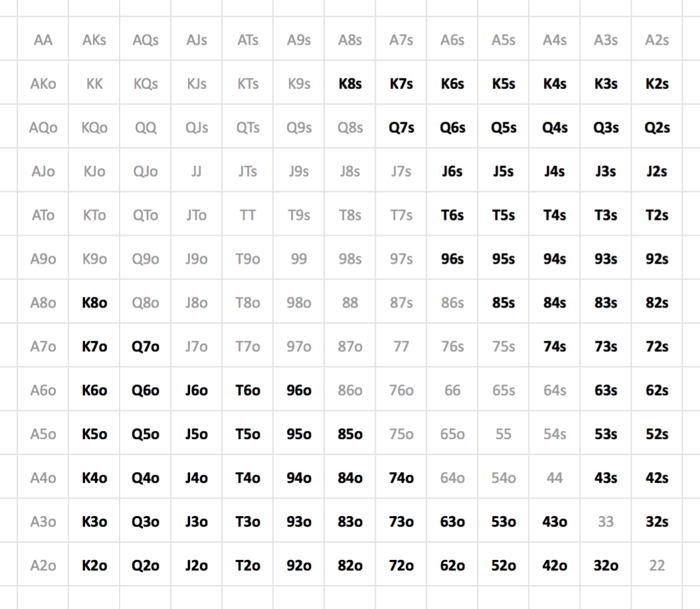
From there, you can continue to add on auto-fold hands for years. I don't know how tight you'll end up, but I can tell you what happened to me, right after this…
Urgent Clarification About Auto-Fold Ranges
If you auto-fold, say, 34% of your hands in a given situation, it does not mean that you auto-play the other 66%.
The hands outside of your auto-fold range make up your "it depends" range. With those hands, you might fold, you might call, or you might raise, depending on players and stacks and everything else. Auto-fold ranges are player independent because they are defined only by position and prior action.
For blank charts, along with instructions for discovering and organizing your auto-fold ranges, check out my article called "Auto-Fold Ranges: A Tool for Fixing Your Poker."
Symmetrical Ranges
Did you notice that those range charts are symmetrical? That's because in the small blind, J-6s is only slightly better than J-6o, and the difference is not big enough to turn a fold into a call.
Tightest of All Time?
I've been a hardcore flop addict most my life, yet my VPIPs shrank steadily for thirty years because at each new level of tightness, it always felt like I would do even better if I played even tighter. So I did. Even though my tightness was locked in combat with my flop cravings.
I'm glad to say, the war is over. It ended ten years ago, when I attained terminal tightness, and the flop cravings finally left me. Now when I'm in the small blind and the limpers limp, I painlessly fold 78% of my starting hands 100% of the time, and of the remaining 22%, I fold some of them most of the time.
Add it all up and my VPIP in the small blind — even blind-vs.-blind — is under 20%, which could make me the tightest of all time from the small blind at live NLHE cash games. Somebody has to be.
My Advice
Worship at the Altar of Firstlessness. Drink from the Chalice of Last Action. Default to folding the small blind in limped pots because of position. Do it as part of a long-term strategy. You could call it, "No Thanks, I'd Rather Be Last."
As much as you love the button, that's how much you should hate the small blind. Only complete when you have a good-looking hand. Otherwise, just fold.

World-class coach and author Tommy Angelo is now offering poker pain relief to everyone. You can schedule a call to talk to Tommy about bad betting, bad quitting, bad tempers, or whatever else is hurting your game. Just go to tommyangelo.com. Angelo's first book, Elements of Poker, was called "the seminal poker text of the 21st century" by The London Times, and it has revolutionized the way serious players approach the game.

